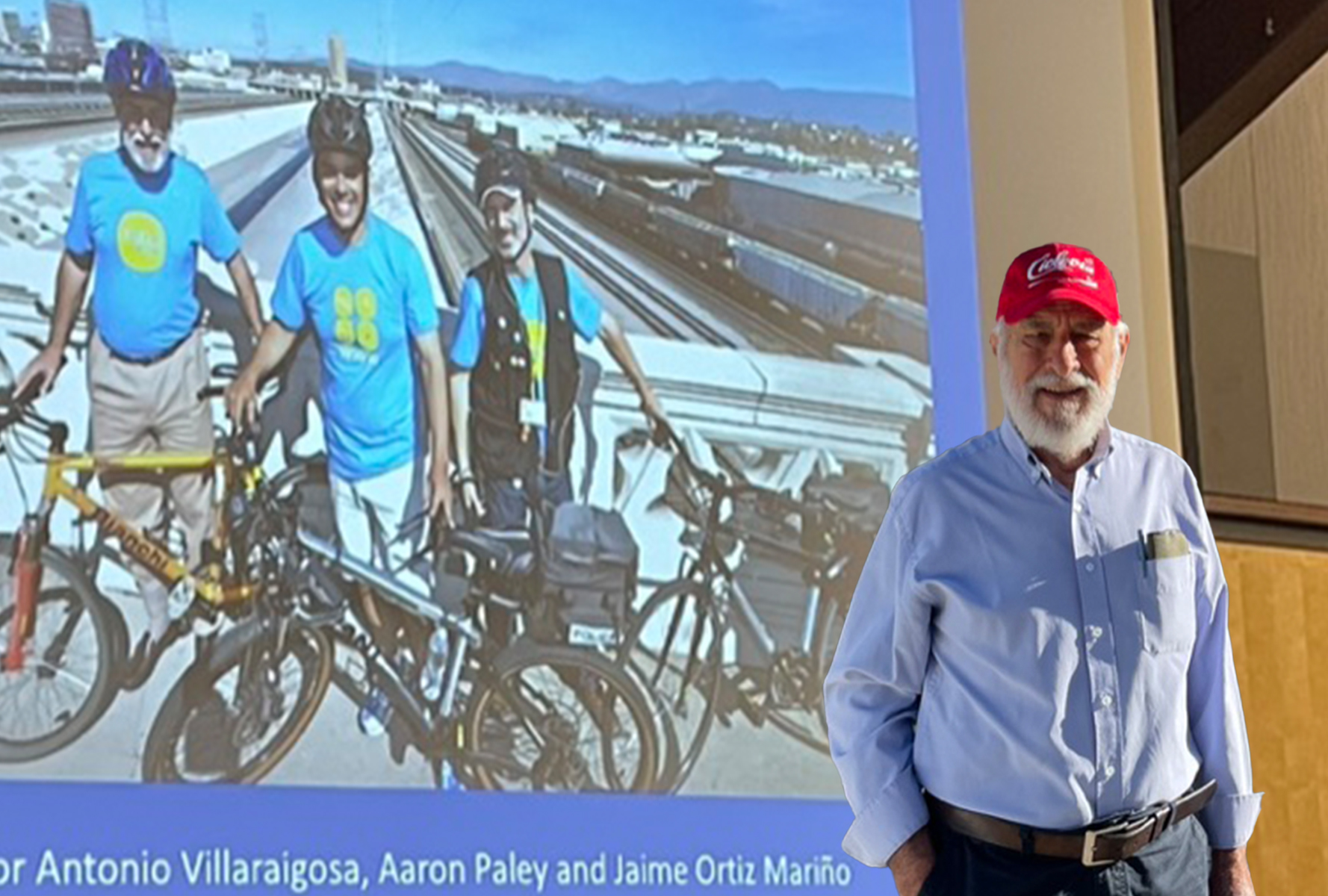On October 11, Crown College at UC Santa Cruz hosted an event that brought together a visionary in urban planning, Jaime Ortiz Mariño, and two leaders from UCSC's biking community to talk about the intersection of cycling, community, and activism.
Mariño, a Columbian architect and activist, is renowned for founding La Ciclovía in 1974. The enduring event provides 75 miles of car-free streets for cyclists, runners, and pedestrians every Sunday in Bogota, Colombia. The first of its kind, La Ciclovía has influenced similar programs around the world, demonstrating the power of the bicycle to strengthen communities and disrupt the conventional use of public space.
Crown College Provost Manel Camps was introduced to Mariño by a Crown alumna, Marilyn Shea-Stonum, during a recent trip to Colombia. “Learning about his activism was quite an eye opener for me,” said Camps. “Jaime’s work extends beyond urban planning and cycling activism; he's also an advocate for decolonizing narratives. I wanted to share this experience with our students because I thought it would be equally enriching for them.”
Mariño’s plenary talk, "Changes in Latitudes, Changes in Attitudes" highlighted the importance of embracing an expansive worldview and decentering Western cultural narratives. He described his experience studying architecture in the United States in the 1960s and how the nation’s counterculture movements showed him that things could be changed if people moved together.
When Mariño returned to Colombia from the United States, he wanted to challenge the prevailing mindset that American cities should act as a model for Colombia's urban development. It was during this time that he rediscovered the bicycle.
“I found the bicycle contained so many elements,” said Mariño. “It was a symbol of the environmental movement. It was a symbol, in the case of Colombia, of social reality. It was an economic symbol. It was an aesthetic symbol. Bicycles are beautiful things.”
Mariño believed that the bicycle was a symbol, and La Ciclovía the instrument to open the debate on urban processes. La Ciclovía has served as a model for car-free initiatives in other countries and will celebrate its 50th anniversary next year.
Before Mariño’s talk, two members of the UCSC biking community took the stage to share more information about UCSC biking initiatives and resources.
Matt Miller (College Nine ‘12) introduced Slug Bike Life as a project committed to creating a more bike-friendly environment on campus. The grant-funded project is part of Transportation and Parking Services (TAPS) and serves as a comprehensive resource at UCSC for bike safety, information, and community. As part of TAPS’ Slug Bike Life program, UCSC community members are eligible for a significantly discounted annual BCycle membership making cycling on campus accessible and affordable.
Another key player in the university's biking community is the Bike Co-op, a student-run non-profit organization represented by UCSC student Seth Pencher. The group empowers individuals to maintain and repair their bikes while promoting safe cycling practices. Pencher emphasized that the group's primary goal is creating community, noting that so much joy and unity can come through cycles.
Mariño’s talk, combined with the insights shared by representatives of UC Santa Cruz's bike programs - Slug Bike Life and Bike Co-op - provided a comprehensive exploration of the power of cycling in building communities and a reminder that small changes can lead to significant transformations.
For the full talk, watch the recording here:

